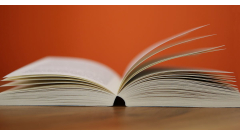Welcome to your gateway for enhancing your essay writing skills! "Crafting Engaging Essays: Using Merriam-Webster's Resources to Enrich Your Writing" is more than just a guide; it’s an exploration into the profound world of words. With the award-winning resources from Merriam-Webster at your fingertips, this guide will empower you to elevate your writing, making it not only more engaging but also impactful. Get ready to harness the power of language and transform your essays into compelling narratives that captivate readers.
This guide takes a joyful dive into the art of crafting essays, offering tips and techniques that leverage the comprehensive tools provided by Merriam-Webster. Whether you're navigating the intricacies of vocabulary or refining your sentence structure, you're in for a transformative experience. By the end, you'll be equipped with a robust arsenal of linguistic skills that will breathe life into your writing!
Discover the magic of meticulous writing with Merriam-Webster's Dictionary and Thesaurus, a treasure trove for those who aim to perfect their craft. This mass-market paperback edition is a trusty companion for students, professionals, and word enthusiasts alike. Not only does it provide precise definitions, but it also serves as an inspiring guide to a richer vocabulary and thoughtful expression. With its user\-friendly format and extensive range of words, it’s the perfect tool to elevate your essays from mundane to magnificent!
Understanding Language Nuances
Utilizing Merriam-Webster's Dictionary and Thesaurus can significantly enhance your understanding of language nuances, which is key to crafting engaging essays. To start, familiarize yourself with the dictionary's layout by locating the alphabetical listing of words. When you come across a word in your writing that feels off, turn to Merriam-Webster and find its definition. Take note of multiple meanings that may exist, as context plays a crucial role in word selection. For example, the word 'light' can refer to illumination, weight, or even a type of clothing. Recognizing these differences allows you to choose the most appropriate meaning according to your essay’s context.
Once you grasp the definitions, delve deeper by examining the connotations associated with each term. Look for notes on usage found in Merriam-Webster, as these hints provide guidance on how a word might resonate with readers. For instance, 'slim' might have a positive connotation of health when discussing a person's figure, while 'skinny' can suggest a negative implication of being unhealthily thin. To refine your word choice, consider the tone of your writing; a formal essay may require more sophisticated vocabulary compared to a casual blog post. When seeking synonyms, don't just pick the first alternative listed. Instead, evaluate their meanings to ensure they align with your intended message. Using the thesaurus component of Merriam-Webster’s resource helps brainstorm relevant words to avoid repetition, elevating the richness of your language.
- Identify the key word you want to understand.
- Consult Merriam-Webster’s Dictionary for definitions.
- Examine the connotations associated with different definitions.
- Consider the context of your essay when selecting words.
- Use the Thesaurus to explore synonyms and diversify your vocabulary.
Enhancing Vocabulary Choices
Utilizing Merriam-Webster's Dictionary and Thesaurus can significantly elevate your writing by expanding your vocabulary. To begin the journey toward enrichment, access the thesaurus, where you will find a plethora of synonyms waiting to be explored. This resource allows you to discover words that carry similar meanings, providing you with alternatives that can enhance the tone and clarity of your essays. Simply enter a base word, and the thesaurus will furnish you with a selection of synonyms and their nuances. Pay attention to context, as the perfect synonym can transform a mundane sentence into one that captivates the reader’s attention. By familiarizing yourself with these alternatives, you can dynamically shift your expression and convey your thoughts with precision.
Antonyms are equally essential in crafting engaging essays. Merriam-Webster’s tools can help you identify opposing words, offering a comparative perspective that adds depth and contrast to your writing. As you incorporate new vocabulary, consider strategies that can help you fully integrate these terms. For instance, try employing new words in daily conversations or writing exercises that permit their use in varied contexts. This active engagement aids retention and comforts the writer in utilizing newly acquired vocabulary fluently.
- Make word mapping a habit: Write down a target word alongside its synonyms and antonyms.
- Practice using new words in multiple sentences to grasp their meaning and applications.
- Set a goal of learning a certain number of new words each week.
Quoting Definitions Effectively
Quoting definitions from Merriam-Webster's Dictionary and Thesaurus enhances your essays by grounding your arguments in authoritative sources. To quote a definition effectively, first, ensure that the term you’re defining is directly relevant to your thesis or the primary arguments in your essay. This relevance helps to clarify your points and provide a strong foundation for your claims. When integrating the definition into your writing, it’s essential to maintain fluency and coherence, avoiding abrupt interruptions in your narrative flow.
Here are some strategies for effectively quoting definitions:
- Introduce the term with context. Instead of dropping the definition in abruptly, provide background. For instance: “The term ‘ephemeral,’ which Merriam-Webster defines as ‘lasting a very short time,’ aptly describes our fleeting moments in life.”
- Use the definition to enhance your argument. For example, “As articulated by Merriam-Webster, ‘resilience’ is defined as ‘an ability to recover from or adjust easily to misfortune or change.’ This concept is critical when discussing the mental fortitude required in adversity.”
- Paraphrase when appropriate, but maintain the essence of the definition. This makes the text more engaging. You might say, “According to Merriam-Webster, the essence of ‘innovation’ involves making significant advancements or introducing fresh ideas to existing concepts.”
Additionally, when you quote or paraphrase a definition, ensure proper citation follows the academic style you are using. This not only bolsters your credibility but also encourages readers to explore the definitions further. By employing these techniques, your essays can become enriched with clarity and authority.
- Consider thematic connections to the definitions for deeper analysis.
- Integrate multiple definitions to explore nuances in meaning.
- Connect definitions to real-life examples or evidence in your argument for greater impact.
Finding Correct Pronunciations
Merriam-Webster's Dictionary and Thesaurus serves as an essential tool for writers who wish to enhance their essays through precise language and correct pronunciation. To find the correct pronunciation of a word, start by searching for it in the dictionary. Each entry typically includes phonetic symbols that represent how to articulate the word accurately. These symbols provide a visual guide to sounds and can significantly aid in mastering the pronunciation of challenging terms. For example, the word "philanthropy" is broken down phonetically as /fɪˈlænθrəpi/. Here, the slashes indicate that the text within them represents sounds, while the stress placed on the syllables helps indicate which part of the word to emphasize. Such notations clear up ambiguity surrounding pronunciation.
Understanding phonetic symbols can be daunting at first, but familiarity breeds ease. Using this system, you can decode a host of challenging words. Consider these examples: the word "quixotic," pronounced as /kwɪkˈsɒtɪk/, and "deft," pronounced as /dɛft/. When utilizing Merriam-Webster's resources, be mindful of other elements that might assist in pronunciation, such as audio pronunciations available on their website or app, which provide guidance to ensure proper articulation of terms. Combine these strategies to develop a more sophisticated and clear writing style that resonates with readers.
- Check phonetic symbols for clarity on sounds.
- Use audio features for aural examples.
- Practice difficult words to increase confidence.
Exploring Word Origins
Understanding etymology—the study of word origins—is essential for any writer aiming to enrich their essays. When authors know the roots of words, they gain insights into the nuances and shades of meaning that a word can convey. Words are not just vessels for communication; they carry histories, cultures, and contexts that can add depth to your narrative. Etymology helps to unlock these layers, allowing you to choose words that resonate more profoundly with your audience. By employing tools like Merriam-Webster's Dictionary and Thesaurus, you can easily delve into the origins of words, enhancing the richness of your writing and making your essays more engaging.
Using Merriam-Webster's resources is straightforward, particularly when it comes to exploring word origins. To find etymological information, follow these steps:
- Visit Merriam-Webster's website or consult the Mass-Market Paperback version of the dictionary.
- Enter the word you want to investigate into the dictionary search bar.
- Look for the etymology section, usually located after the pronunciation and definition of the word.
- Read the etymological background, which often includes the language the word originated from and its journey through linguistic evolution.
Identifying Word Forms
Understanding how to identify different forms of a word is a critical skill for crafting engaging essays. By utilizing Merriam-Webster's Dictionary and Thesaurus, you can explore various word forms—such as verb tenses, noun forms, and adjectives—that enhance the quality and clarity of your writing. For instance, consider the verb "to educate." The present tense "educates," the past tense "educated," and the participle "educating" not only indicate the timeline of actions but also allow you to choose the most appropriate form based on your context.
When modifying nouns, it’s important to recognize their plural versus singular forms. A word like "analysis" serves as a good example. The plural form "analyses" can enrich your writing when discussing multiple studies or assessments, thereby enhancing specificity. Here are some additional insights to help navigate word forms:
- Use noun forms to create a clearer picture—for instance, using "happiness" rather than "happy" when discussing emotional states.
- Experiment with gerunds and infinitives to add variety; for instance, "running" (gerund) versus "to run" (infinitive) can change the nuance of your sentence.
- Be mindful of adjectives; varying their forms can greatly affect tone and sophistication, such as choosing "beautifully" over "beautiful" when describing an action.
Utilizing Contextual Definitions
When crafting essays, selecting the right words is crucial to effectively conveying your message. Merriam-Webster's Dictionary and Thesaurus serve as valuable tools for exploring contextual definitions that help you choose words appropriately based on their intended meaning. Understanding that words can carry different connotations and implications depending on the context allows you to enrich your writing and engage your readers more effectively. For instance, consider the word “happy.” While it may seem straightforward, it can be nuanced in various situations; a person can feel “content,” “elated,” or “satisfied,” each with a distinct shade of meaning. Leveraging the resources of Merriam-Webster can aid you in discerning these subtleties. By entering a word in the dictionary, you can not only read its definition but also explore example sentences that demonstrate its usage in varied contexts.
Practice selecting words based on situational context with the following exercises:
- Identify a word that describes a feeling or emotion, like “excited.” Use Merriam-Webster to find synonyms and select alternatives that fit various situations, such as “enthusiastic” for a job interview or “jubilant” for a celebratory occasion.
- Write a short paragraph using one primary theme, such as “conflict.” Use different synonyms sourced from Merriam-Webster's Thesaurus and create sentences that reveal the varying intensity and nature of each synonym. This exercise will enhance your ability to express and fit words into different contexts effectively.
These strategies can empower you to enhance your essays' depth and clarity, showcasing your refined vocabulary and contextual understanding.
- Regularly consult Merriam-Webster's resources to observe how word choices impact meaning.
- Experiment with various sentence constructions using different synonyms for richer narratives.
Related Products
Improving Clarity in Writing
Utilizing Merriam-Webster's Dictionary and Thesaurus can significantly elevate the clarity of your essays. Begin by leveraging the dictionary to define terms precisely. When you find yourself unsure about a word's meaning or if its definition is truly the one you intend to convey, look it up in this reputable source. Accurate definitions not only avoid ambiguity but also enhance credibility. For example, if you are writing about a complex scientific concept, ensuring that the terms used are defined correctly helps your reader follow your argument without getting lost in unclear terminology. This practice allows for smooth transitions and a coherent flow of ideas, making your argument more persuasive.
Another key element to improving clarity is avoiding jargon that could alienate or confuse your readers. While specialized language may be tempting to demonstrate expertise, it often detracts from the overall readability of your essay. Aim for straightforward language that communicates your ideas simply but effectively. When you encounter jargon, consult the Merriam-Webster Thesaurus to find synonyms that are clearer or more familiar to a broader audience. Engaging your readers with accessible language ensures that your message remains the focal point, rather than getting bogged down by terminology that may not resonate with everyone.
- Regularly consult your dictionary to verify definitions and usage.
- Transform jargon into commonly understood terms using the thesaurus.
- Prioritize clarity by constructing straightforward sentences that convey your thoughts directly.
Building Argumentative Precision
Crafting an argumentative essay requires clarity and precision, and one of the best resources at your disposal is Merriam-Webster's Dictionary and Thesaurus. This mass-market paperback serves as an essential tool for students and writers seeking to enhance their linguistic accuracy. Engaging with this resource can significantly strengthen the argumentative framework of your essays. By taking the time to look up complex or ambiguous terms, you can ensure that your arguments are conveyed with the utmost clarity. Precision in language not only enhances your credibility but also makes your arguments more compelling. When selecting words that are critical to your claims, remember that a single term can shift the meaning of an entire sentence, therefore requiring careful consideration.
Utilizing the dictionary effectively involves several approaches. First, familiarize yourself with the nuances of words that are pivotal to your thesis. When asserting a claim, consider exploring not just the definitions but also the connotations associated with each word. For instance, differentiating between synonyms in the thesaurus can help you find the exact term that aligns with the tone and gravity of your argument. Additionally, break down complex phrases into simpler components to ensure they resonate clearly with your audience. In recognizing various shades of meaning, you can present arguments that are not only well-informed but also articulate and persuasive. Here are some tips to maximize your use of Merriam-Webster's resources:
- Look up unfamiliar terms that might enrich your essay's vocabulary.
- Identify synonyms and antonyms to diversify your language structure.
- Check for the etymology of words to better understand their origins and implications in your argument.
- Consult usage notes for guidance on how to employ specific words correctly and effectively.
Citing Sources Skillfully
Crafting an engaging essay often involves the thoughtful citation of various sources, including esteemed references like Merriam-Webster's Dictionary and Thesaurus, Mass-Market Paperback. Properly citing dictionary and thesaurus entries not only gives credit to the original creators but also enhances the credibility of your own writing. Different formatting styles—such as APA, MLA, and Chicago—each have specific guidelines that can help you reference these resources effectively.
In APA format, the citation of a dictionary entry follows this structure: Author. (Year). Title of entry. In Title of work (Edition). Publisher. For example: Merriam-Webster. (2023). Algorithm. In Merriam-Webster's collegiate dictionary (11th ed.). Merriam-Webster, Inc. In MLA format, you might format it as follows: “Algorithm.” Merriam-Webster’s Collegiate Dictionary, 11th ed., Merriam-Webster, Inc., 2023. The Chicago style takes a similar approach but tends to be more flexible, allowing for variations based on usage.
- The importance of crediting sources lies in avoiding plagiarism, which can severely impact your academic integrity.
- Ensure the accuracy of your citation; even minor errors could mislead your readers.
- Adding a bibliography or works cited page at the end of your essay provides a comprehensive view of all sources used.
Why We Chose This Product
As you wrap up your journey through this guide, it’s essential to recognize why Merriam-Webster’s resources were chosen as your companion for this writing adventure. Their long-standing reputation in the field of language makes them the ideal ally for anyone seeking to improve their writing. By anchoring your skills in the rich vocabulary and thorough definitions offered by Merriam-Webster, you are setting the stage for crafting essays that are not only persuasive but also polished.
- Expands your vocabulary with reliable definitions and examples.
- Enhances clarity and precision in expression.
- Inspires creativity through diverse word choices.
Choosing Merriam-Webster means investing in a trusted resource that empowers your writing journey. When you rely on their extensive materials, you’re not just learning; you’re evolving as a writer.
Discover the magic of meticulous writing with Merriam-Webster's Dictionary and Thesaurus, a treasure trove for those who aim to perfect their craft. This mass-market paperback edition is a trusty companion for students, professionals, and word enthusiasts alike. Not only does it provide precise definitions, but it also serves as an inspiring guide to a richer vocabulary and thoughtful expression. With its user-friendly format and extensive range of words, it’s the perfect tool to elevate your essays from mundane to magnificent!










